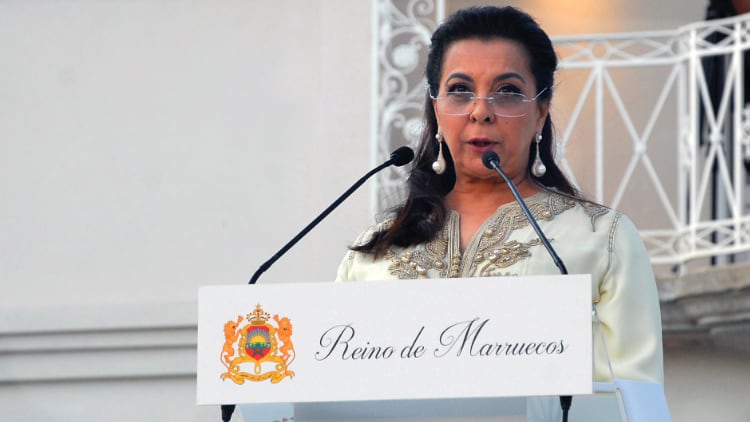The Diplomat
The Moroccan ambassador to Spain, Karima Benyaich, who was recalled for consultations by Rabat in mid-May in protest at the reception in a Spanish hospital of Polisario Front leader Brahim Ghali, has returned to Madrid in the last few hours, following the change of position of Pedro Sánchez’s government on Western Sahara.
Government sources confirmed the return of the Moroccan diplomat, just a day after Algeria announced the recall of its ambassador to Spain, Said Moussi, precisely to express its dissatisfaction with the decision of the Executive to describe Morocco’s autonomy proposal for the Sahara as “the most serious, realistic and credible basis for the resolution of the dispute”.
Yesterday, Algerian diplomatic sources denied that the Spanish government had warned Algiers in advance of its change of position, as Moncloa claimed on Saturday, and insisted that the decision had come as a ‘surprise’.
What is certain is that the return to her post in Madrid of Karima Benyaich, who at the time was one of the Moroccan voices that most publicly expressed Morocco’s displeasure over the ‘Ghali case’, is Rabat’s first gesture of conformity with the path taken by Spain.
The Spanish authorities were reluctant to align themselves with other countries such as France and Germany, which had already given their approval to Morocco’s autonomy plan for Western Sahara, but have finally opted to do so, even at the cost of opening a new crisis, this time with Algeria, one of our main gas suppliers.
Despite Algeria’s unease, the Spanish government continues to insist that its position on the Sahara will not affect its ‘solid’ relationship with Algeria, which for Spain is ‘a strategic, reliable and friendly partner’, in the words of government spokesperson Isabel Rodríguez, in an interview published yesterday in La Razón.
According to the Minister for Territorial Policy, the new scenario that has now opened up “guarantees the necessary stability”. “We have reached mutual commitments and we have fulfilled them: among them, the absence of unilateral actions and maintaining fluid and frank communication to continue strengthening the management of migratory flows. The key will be cooperation,” he said.
The Spanish government, whose decision may have been influenced, according to some sources, by indications from the US Deputy Secretary of State, Wendy Sherman, during her visit to Madrid on the 7th, is now preparing to complete the next stages of reconciliation with Morocco.
The most immediate seems to be a trip to Rabat on 2 April by Foreign Minister José Manuel Albares, who is said to have been one of the main driving forces behind Spain’s turnaround. This visit will be followed later by a visit by Prime Minister Pedro Sánchez, which would ratify Spain’s choice in favour of Morocco, in order to guarantee itself a calm horizon, even at the cost of seeing relations with Algiers deteriorate.
Domestically, all the political formations to the right and left of the government, including his partners in Unidas Podemos, continue to criticise Pedro Sánchez for having taken a far-reaching decision behind Parliament’s back, and are demanding that he give explanations in the lower house.
These discrepancies were highlighted by the spokesperson of the Presidency of the self-proclaimed Sahrawi Arab Democratic Republic (SADR), Nana Labat Rachid, in declarations to the Algerian press.
The Polisario leader recalled that Spain’s support for the Moroccan autonomy plan does not change the fact that from the point of view of international law, Western Sahara remains a non-self-governing territory for which a process of decolonisation must be completed.







